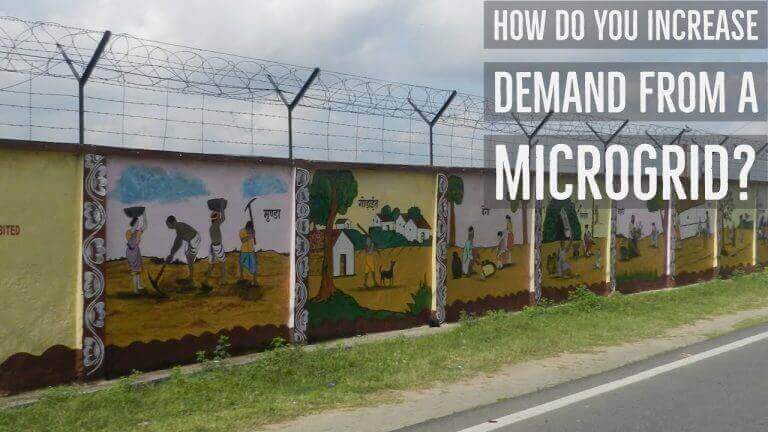Kenyan entrepreneurs tackling environmental problems are growing by harnessing three aspects of globalization. First: they are securing angel investment from senior executives of multinational companies who have saved some extra cash during their careers. Second: they are tapping the work experience of the investors by actively collaborating with the help of information technology. Third: they are pushing the costs of product development down by collaborating with international supply chains.
Jane Wangari started LeJan Energy, a biomass briquette business which helps Kenyan factories replace firewood. She invested her savings to buy a briquetting machine but did not have enough money to buy a biomass dryer. Biomass waste has to be dried before being pressed into briquettes. She could not run the briquetting machine to capacity even as orders poured in from a large confectionary maker. In 2018, she met Sjors Jansen at an investor conference in Nairobi organized by an Indian company. Jansen had worked for 19 years in Royal Shell and was now looking to invest in African entrepreneurs who are making money to “pay the day-to-day bills but are not accumulating savings fast enough to buy additional machines”. He invested in Jane’s business and then helped to procure, install, troubleshoot and ensure operational safety. Sales increased four times.
Teddy Odindo, Jack Ayieko and Mike Sherry started Mwezi Solar which sells solar home systems and solar fishing lights. Odindo and Ayieko used to work in an organization distributing cookstoves. Sherry worked as the Finance Director of a UK multinational. They met in Kenya on a carbon credits project and over long “chats and walks” decided to set up a business. Odindo and Ayieko run the operations in Kenya and Sherry runs the finances from his home-office in Oxford. The field force has mobile apps, the accounting systems are all cloud-based and the company maintains a discipline of closing the books every month. The management can run reports from anywhere. Their main challenge is to source good quality products.
These entrepreneurs outsource product development and manufacturing. But with the little cash they have, they need products of high quality. Omnivoltaic, a Chinese company is bringing quality solar products to the African market. The company has its factories in Guangzhou and Shenzhen to take advantage of the electronic supply chain. The CTO and his team are located in Silicon Valley because that is where the best design and technology ideas are available. The Chinese start-up also has an office in Kenya so that entrepreneurs can order in small quantities. Andy Gao who is their head of Africa business is based in Nairobi so he can be close to customers. The products they have supplied to Mwezi Solar have great customer reviews.
Building global partnerships take time and effort
It is never easy to build global partnerships. These businesses are new and it takes time to find the product-market fit. There are transaction costs to work through. Individuals can work through some of these challenges once they hit the right “personal chemistry”. It is particularly hard to build global partnerships between two mid-sized companies as both have history and culture and a way of doing things which may or may not match. But when companies do, they can create a large scale impact.
Azuri Technologies is one of the largest “Pay as you Go” Solar Home Systems in East Africa. It was created in 2012 by Dr Simon Bransfield-Garth, a doctorate from the University of Cambridge. Azuri works with local partners and its main business partner is Raj Ushanga, Kenya’s largest beads company. Raj Ushanga is managed by Rajesh Haria, whose grandfather came to Kenya from India before World War 1, a time when people could travel without passports. The partner sets up a local distribution network, hires and manages sales agents, gets the logistics to work and manages a call center. The center follows up with thousands of rural customers to resolve complaints and chase payments. Azuri employees work on technology, raise money in international markets and test products that can be sold through the network.
Azuri and Raj Ushanga had both worked with other solar companies before they came to meet each other and knew what they wanted from each other. It took them some time to work through the product kinks and build the infrastructure in six counties of Kenya. It helped that Raj Ushanga had a stable beads business which provided enough cash flow but at the same time, did not distract Haria from focusing on this new business.
Incubators must accelerate these partnership trends emerging from globalization
Kenya has more than a dozen incubators. They include the first Climate Innovation Center started by the World Bank. Silicon Valley universities – Santa Clara and Stanford – run specialist entrepreneur support programmes. All incubators aim to help entrepreneurs raise capital from international impact investors. They all claim to have high selection standards, the best mentors and an extensive investor network. Many of them provide a little bit of cash support as well. Unfortunately, it is very hard to add value to either the entrepreneur or the institutional investor. Entrepreneurs sign up for the incubation program, listen to the mentors and forget it soon after. Some of them hop from one incubator to another collecting the small bits of cash. The more seasoned entrepreneurs find the business training to be too basic and directly reach out to investors themselves. The investors know that they would hear from the best entrepreneurs anyway and prefer to act on their own.
To be effective, incubators should actively help catalyse globalization trends by focusing on key players. First, they should target individual angel investors. Today, incubators recruit mentors who do not put their money where their advice is or they target institutional impact investors who have their own teams to do search and diligence. Incubators can add value to individual investors by helping them understand the landscape of local businesses. Second, they should target international production companies. Today incubators generally ignore larger product suppliers of critical clean technology products to Africa, focusing exclusively on early-stage companies. To add value to larger companies investor-mentors should support in the difficult aspects of global business: partner selection and management, technology trends, product quality and international finance. They can do so if they have real skin in the game.



